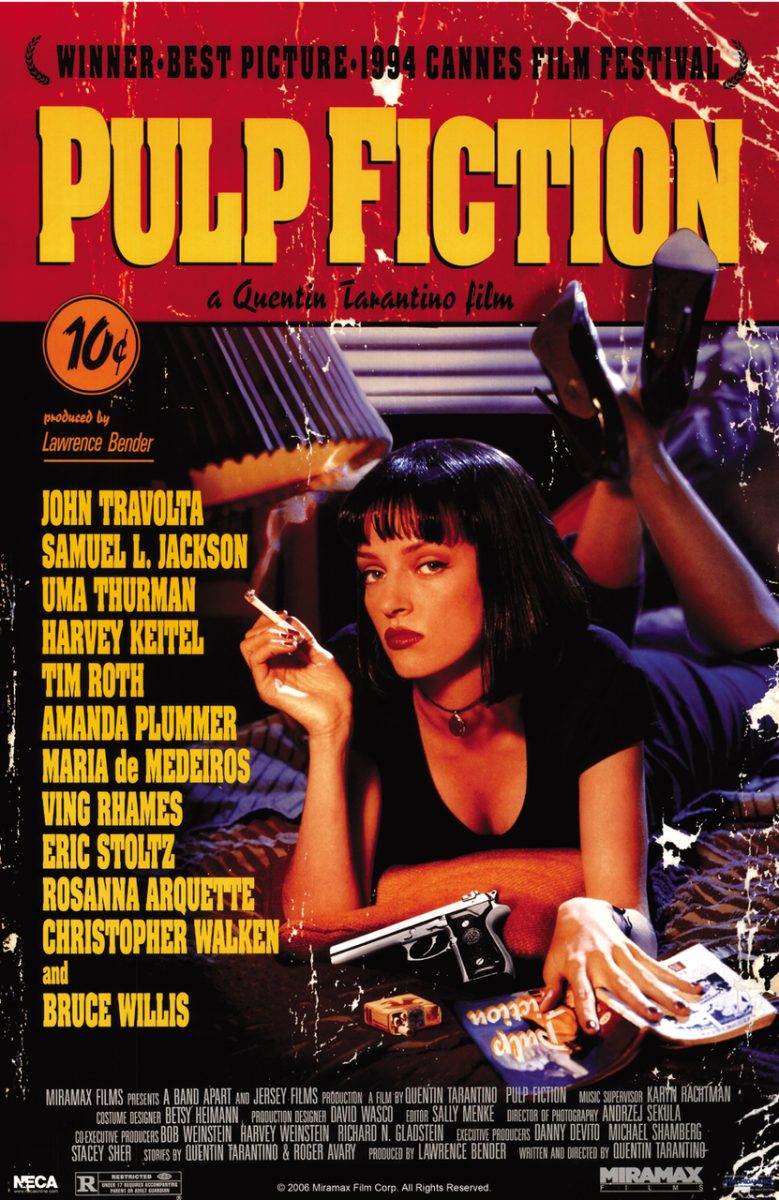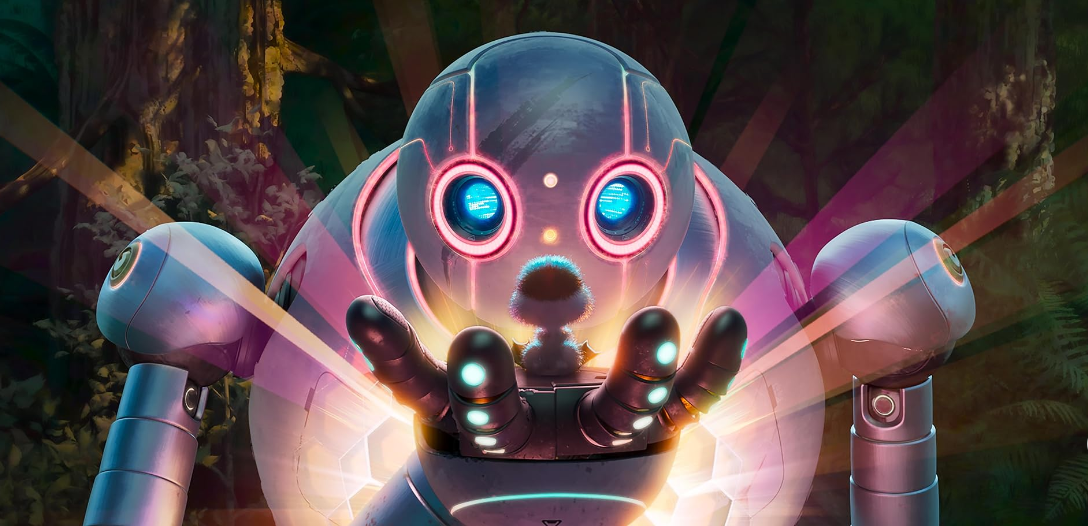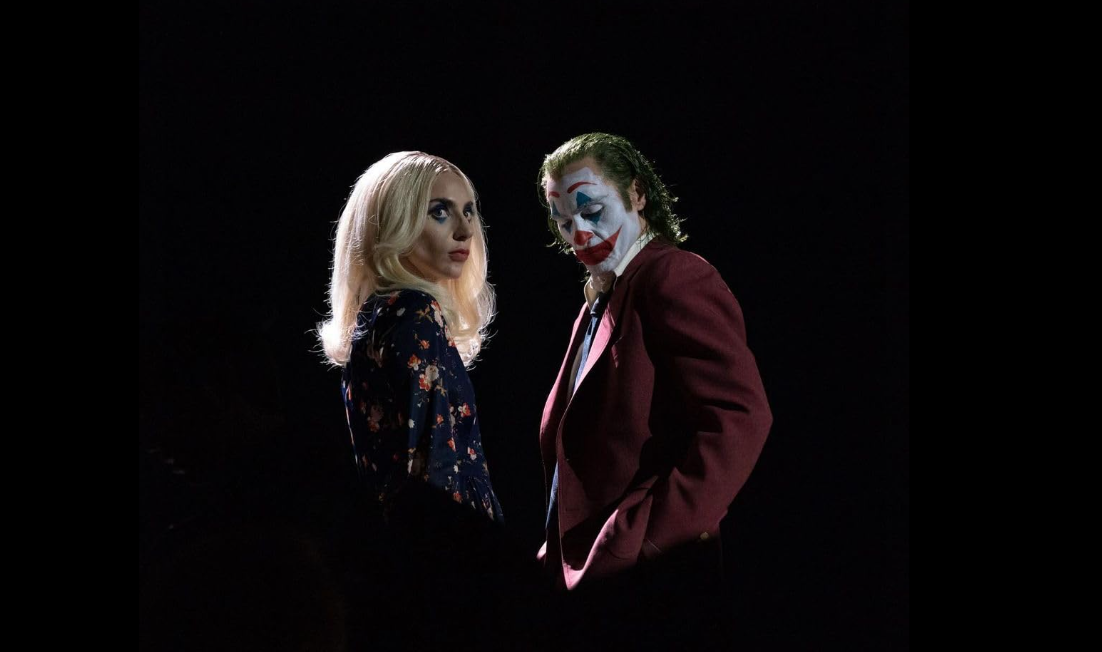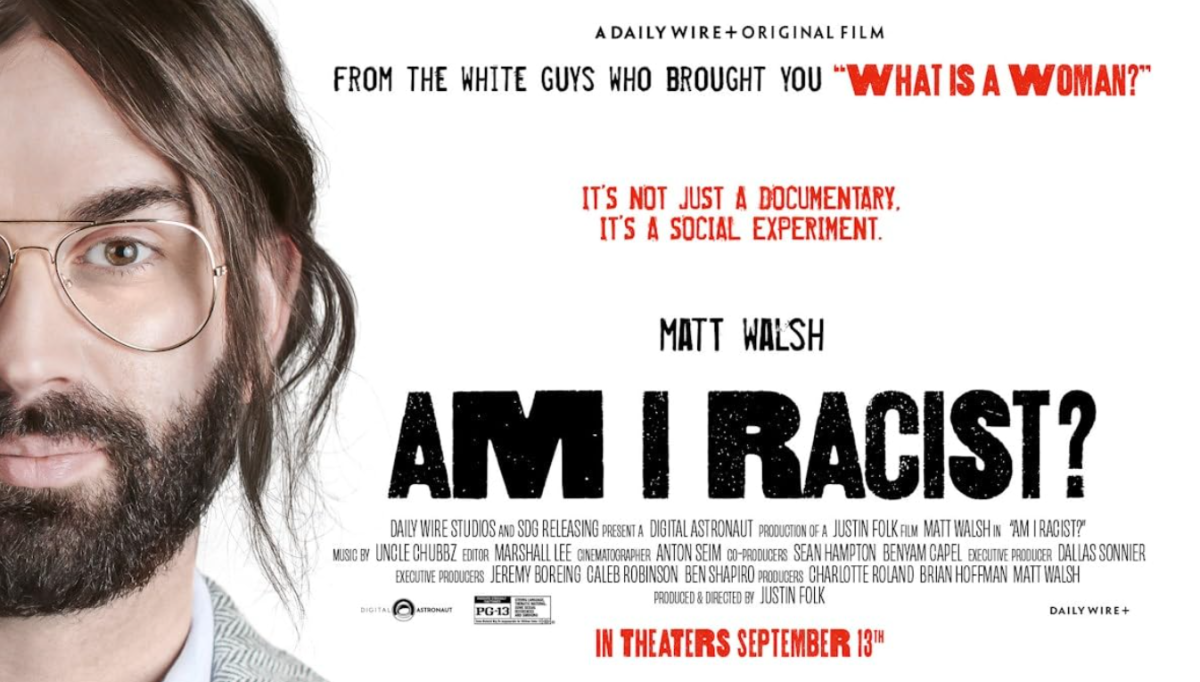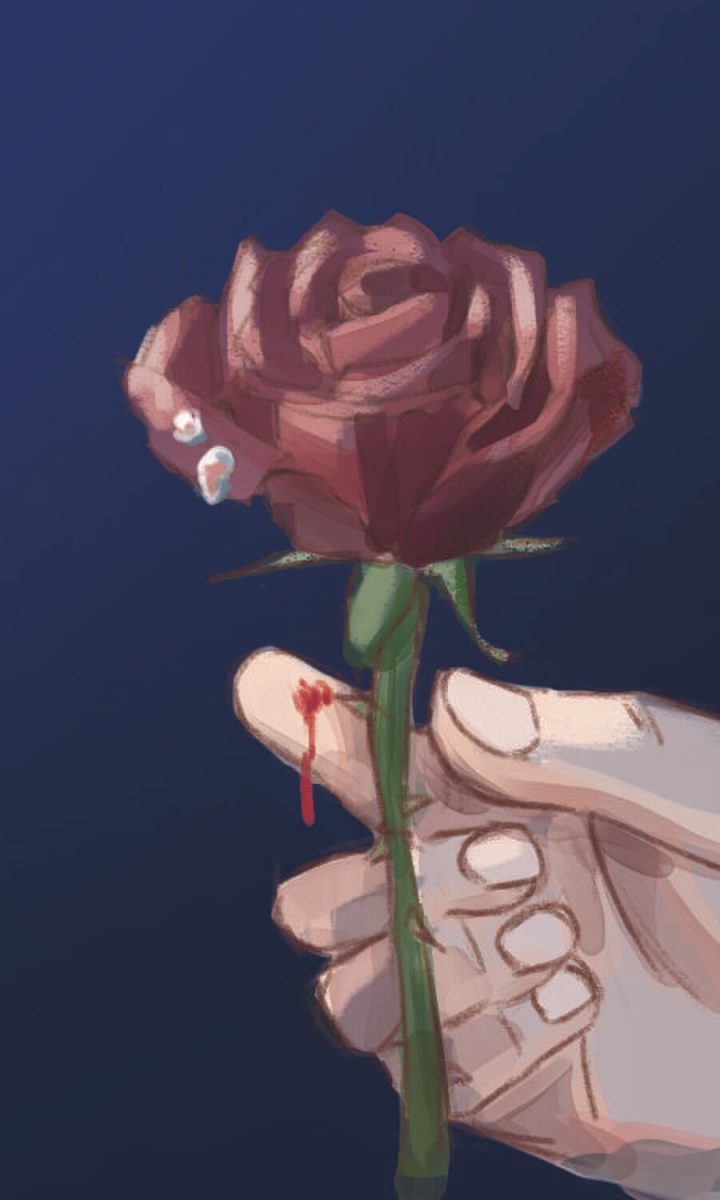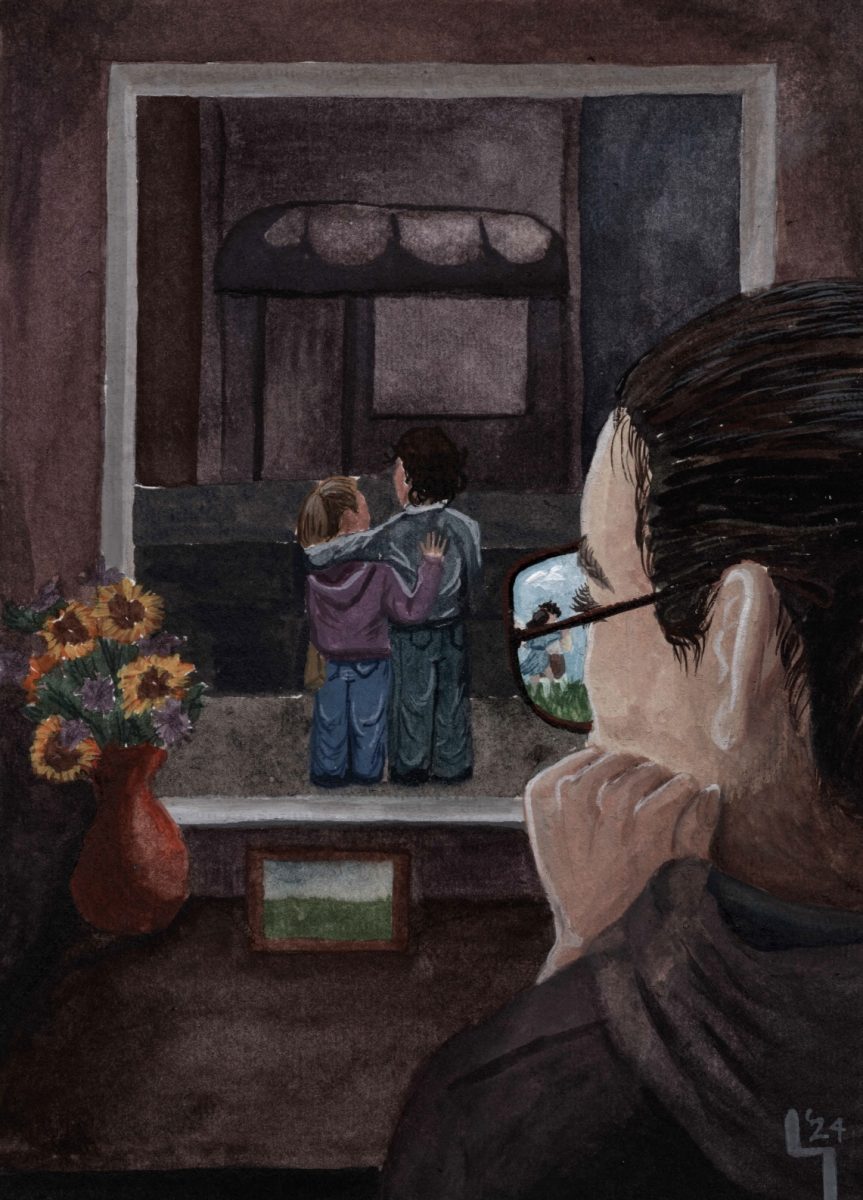Quentin Tarantino is one of the most skilled directors of our time. The writer/director is responsible for such masterpieces as “Kill Bill,” “Reservoir Dogs,” “Inglorious Basterds” and “Django: Unchained.” Despite the success and importance of all those films, none shine brighter than the modern classic “Pulp Fiction.” On Sept. 7, the best work of one of the best directors of today is returning to the big screen at the Queen Theatre in Bryan for showings at 3 and 7 p.m.
Before going to see “Pulp Fiction,” it’s important to understand the film’s legacy and how it influenced the film industry after it was first released in 1994. Everything about the nearly three-hour film is iconic, from the characters and the script to the non-linear and unfocused story.
One of the things “Pulp Fiction” is known for is its plethora of colorful characters and the myriad stories of which weave together to create the narrative of the film. Most everyone has heard or at least seen reference of Samuel L. Jackson’s Jules, the calm, collected and utterly badass hit man who delivers some of the most iconic and recognizable lines in all of cinema. Most people have seen John Travolta’s Vincent Vega as well, Jules’ hit man partner who falls in love with the boss’ wife. Bruce Willis plays an iconic role, starring center stage in what fans will recognize as the bodega scene, the film’s most controversial and violent portion. Ving Rhames and Harvey Keitel also bring marvelous life to two lesser seen but still wholly unique characters.
And, Uma Thurman’s shining performance as the drug-addled Mia Wallace is enough to steal the show of any lesser film, but just manages to hold its own against the other landmark performances delivered by everyone involved in Tarantino’s action-packed character study.
While all these phenomenally acted and well-written characters contribute greatly to the high-quality feel of the film, it’s also important to note that they played a larger role in the film’s massive success. In a sense, the characters are the film and in a more direct way than most films before it.
“Pulp Fiction” doesn’t have a message or a moral, at least not in any traditional sense. It tells the stories of criminals and murderers, some of whom get what’s coming to them, some of whom go unpunished. The plot, isn’t about telling a story or even multiple stories, but about examining complex and highly developed characters and their motivations. One character is driven by vengeance and the need to preserve his father’s legacy, another is driven by perceived acts of God. One character is driven by hedonistic pleasures, another by love. Two characters are driven by money, and one by some twisted code. The film navigates these changing and developing motivations deftly, and uses plot events, not to further its story, but to further its characters. And that’s why characters are so important in “Pulp Fiction” and why they have become one of the most recognizable aspects of an already recognizable film. The movie doesn’t tell the story of an event in a person’s life or capture the feel of a time period. Instead, it chooses to explain its characters, and it does so very well.
Today, “Pulp Fiction” has achieved the cultural reverence it has always deserved, but when it first premiered it was not so popular. In fact, the masterpiece was almost immediately met with controversy. The film debuted at the Cannes Film Festival in France and went on to win the prestigious festival’s highest honor, the Palme d’Or. While “Pulp Fiction” was liked at first, disgruntled festival goers began to protest the film after it was awarded the honor, feeling that the award should have gone to a different, more traditionally artistic film instead. Widespread critical praise in the months following the film’s wide release proved that “Pulp Fiction” more than deserved its Palme d’Or, despite the protests.
Since the 1994 box office success, “Pulp Fiction” has only gained momentum. It is still Tarantino’s best work, the crown jewel of a very successful career. It has surpassed the title of a great movie and elevated itself to classic status. It has a dedicated following and significantly boosted the careers of everyone involved in its creation. It is one of the most culturally significant films of the past 30 years, and it’ll always be one of my all-time favorites.
I know I’ll be at the Queen Theatre on Sept. 7. I wouldn’t dream of missing “Pulp Fiction” on the big screen. And neither should you.
Tarantino’s classic ‘Pulp Fiction’ to play at local theatre
September 2, 2019
Photo by Creative Commons
Pulp Fiction is playing in the Queen Theatre Saturday, Sept. 7 at 7:00 p.m.
0
Donate to The Battalion
Your donation will support the student journalists of Texas A&M University - College Station. Your contribution will allow us to purchase equipment and cover our annual website hosting costs.
More to Discover



